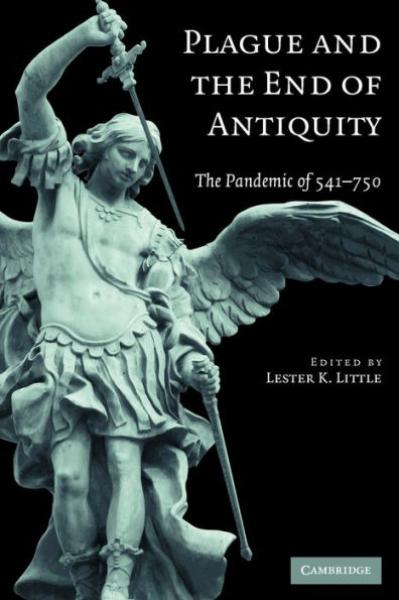Description
Plague was a key factor in the waning of Antiquity and the beginning of the Middle Ages. Eight centuries before the Black Death, a pandemic of plague engulfed the lands surrounding the Mediterranean Sea and eventually extended as far east as Persia and as far north as the British Isles. Its persisted sporadically from 541 to 750, the same period that witnessed the distinctive shaping of the Byzantine Empire, a new prominence of the Roman papacy and of monasticism, the beginnings of Islam and the meteoric expansion of the Arabic Empire, the ascent of the Carolingian dynasty in Frankish Gaul and, not coincidentally, the beginnings of a positive work ethic in the Latin West. In this volume, the first on the subject, twelve scholars from a variety of disciplines--history, archaeology, epidemiology, and molecular biology-- have produced a comprehensive account of the pandemic's origins, spread, and mortality, as well as its economic, social, political, and religious effects. The historians examine written sources in a range of languages, including Arabic, Syriac, Greek, Latin, and Old Irish. Archaeologists analyze burial pits, abandoned villages, and aborted building projects. The epidemiologists use the written sources to track the disease's means and speed of transmission, the mix of vulnerability and resistance it encountered, and the patterns of reappearence over time. Finally, molecular biologists, newcomers to this kind of investigation, have become pioneers of paleopathology, seeking ways to identity pathogens in human remains from the remote past.
Plague was a key factor in the waning of Antiquity and the beginning of the Middle Ages.
Lester K. Little is Dwight W. Morrow Professor Emeritus of History at Smith College and former Director of the American Academy in Rome. He is a past President both of the Medieval Academy of America and of the International Union of Institutes of Archaeology, Art History, and History in Rome. He is the author of Benedictine Maledictions: Liturgical Cursing in Romanesque France and Religious Poverty and the Profit Economy in Medieval Europe.
"...this work escapes the fate of so many single-subject edited volumes, remaining interesting and thought-provoking throughout. Each chapter has new ideas to provide the reader, and Little does an admirable job of editing a comprehensive volume with a minimum of repetition. ....It is an excellent scholarly discussion and a base from which further research can occur. ...this book is an indication that this fascinating topic is finally receiving the scholarly attention it deserves." BMCR
"For those who want an indepth discussion of discrete topics, i wholeheartedly recommend Plague and the End of Antiquity."
Raymond J. Dawttwyler, M.D. The New England Journal of Medicine
"Plaque and the End of Antiquity is a fascinating collection of essays by specialists in history, archeology, epidemiology, and molecular biology..."
Eamon Duffy, The New York Review of Books
"The authors' successful integration of insights from many fields provides a thorough account of the pandemic's origins, lethality, waxings, and wanings... Plague and the End of Antiquity ...provide[s] an ideal historic basis for dealing with the many facets of plague today and in the future."
Science
" is a fascinating collection of essays by specialists in history, archaeology, epidemiology, and molecular biology..." --New York Review of Books
Plague was a key factor in the waning of Antiquity and the beginning of the Middle Ages.
Lester K. Little is Dwight W. Morrow Professor Emeritus of History at Smith College and former Director of the American Academy in Rome. He is a past President both of the Medieval Academy of America and of the International Union of Institutes of Archaeology, Art History, and History in Rome. He is the author of Benedictine Maledictions: Liturgical Cursing in Romanesque France and Religious Poverty and the Profit Economy in Medieval Europe.
"...this work escapes the fate of so many single-subject edited volumes, remaining interesting and thought-provoking throughout. Each chapter has new ideas to provide the reader, and Little does an admirable job of editing a comprehensive volume with a minimum of repetition. ....It is an excellent scholarly discussion and a base from which further research can occur. ...this book is an indication that this fascinating topic is finally receiving the scholarly attention it deserves." BMCR
"For those who want an indepth discussion of discrete topics, i wholeheartedly recommend Plague and the End of Antiquity."
Raymond J. Dawttwyler, M.D. The New England Journal of Medicine
"Plaque and the End of Antiquity is a fascinating collection of essays by specialists in history, archeology, epidemiology, and molecular biology..."
Eamon Duffy, The New York Review of Books
"The authors' successful integration of insights from many fields provides a thorough account of the pandemic's origins, lethality, waxings, and wanings... Plague and the End of Antiquity ...provide[s] an ideal historic basis for dealing with the many facets of plague today and in the future."
Science
" is a fascinating collection of essays by specialists in history, archaeology, epidemiology, and molecular biology..." --New York Review of Books
Last updated on
Product Details
- Cambridge University Pres Brand
- Jan 1, 2008 Pub Date:
- 052171897X ISBN-10:
- 9780521718974 ISBN-13:
- 360 Pages
- 9 in * 6.01 in * 0.91 in Dimensions:
- 1 lb Weight:




